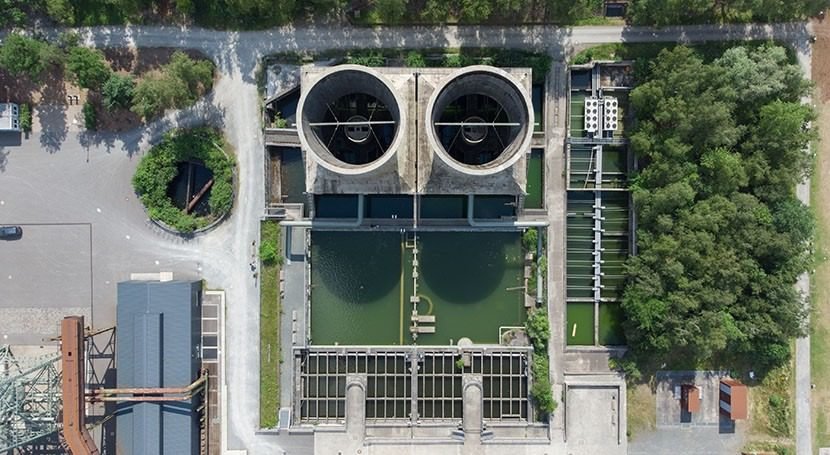Sheikh Hamdan has given his approval for a visionary 100-year sewerage system plan in Dubai, aimed at completely transforming the city. The approved plan, valued at $21.8 billion, is set to cater to Dubai’s population for the next century. The project, which is a collaboration between the government and private sector, aims to create one of the most advanced and sustainable sewerage systems in the world.
The plan aims to cater to Dubai’s growing population for the next century, ensuring that the city’s infrastructure can support its future needs. One of the key objectives of the project is to reduce carbon emissions by 25 percent, contributing to Dubai’s commitment to environmental sustainability.
The approval of the sewerage system plan came during a meeting chaired His Highness by Sheikh Hamdan bin Mohammed bin Rashid Al Maktoum, the Crown Prince of Dubai and Chairman of the Executive Council. He emphasized the importance of forward planning and preparation in line with Dubai’s sustainable development strategy, which has been instrumental in the city’s global prominence and its ability to establish world-class infrastructure.
This groundbreaking project showcases Dubai’s dedication to innovation and readiness for the future, setting new standards in integrated infrastructure and solidifying its position as a leading global city, according to Arabian Business.
Visionary 100-Year Sewerage System Plan: Transforming Dubai’s Infrastructure for the Future
Dubai’s Executive Council has granted approval for the development of a significant municipal project known as the centennial sewerage system. The project aims to establish an advanced and sustainable infrastructure, carried out through a partnership between the government and the private sector.
The primary objective of the sewerage system is to meet the needs of Dubai’s population for the next 100 years, aligning with the goals set forth in the Dubai Economic Agenda D33 and the Dubai Urban Plan 2040. With a substantial investment of AED 80B ($21.8B), the system will play a crucial role in reducing carbon emissions by 25 percent within the sector. It will also promote circular economy principles and contribute to the city’s overall development and competitiveness, particularly in terms of improving quality of life.
To achieve these objectives, the private sector will collaborate closely with the government, fostering future readiness and enhancing the implementation of the sewerage system. Sheikh Hamdan, leading the efforts, has directed the Municipality to facilitate partnerships with private sector companies to implement the project. This highlights the vital role the private sector plays in advancing Dubai’s integrated and sophisticated infrastructure.
Furthermore, Dubai projects private sector investments aligned with the Economic Agenda D33 to surpass AED 1 trillion ($272 billion) by 2033, demonstrating a significant commitment to supporting entrepreneurship and empowering emerging initiatives in the city.
He said: “Small and medium enterprises continue to receive the unwavering support of Sheikh Mohammed bin Rashid Al Maktoum. Over the past two decades, the development of an entrepreneurial ecosystem has provided Dubai’s economy with dynamic growth based on knowledge and innovation.”
“Today, SMEs play a pivotal role, accounting for the largest share of businesses in Dubai.”
Reducing Carbon Emissions: Dubai’s Sewerage System Plan Commits to Sustainability
Dubai’s recent approval of the new sewerage system solidifies its position as a leading, modern, and sustainable city on a global scale. This system will play a pivotal role in achieving the Clean Energy Strategy 2050 and the city’s sustainable development objectives. By enhancing operational efficiencies and extending the system’s lifespan from 25 to 100 years, it aligns seamlessly with the goals outlined in the Economic Agenda D33 and Urban Plan 2040.
Under this mega project, we will implement strategic tunnel initiatives at Jebel Ali and Warsan stations, introducing advanced infrastructure to enhance functionality. We will optimize urban areas by reducing the number of main wastewater treatment plants from 20 to two, and the number of main pumping stations from 13 to two.
Sub-pumping stations in urban areas will also undergo a significant reduction, from 110 to less than 20. Furthermore, there will be a focus on transforming treatment plants into clean facilities and maximizing the utilization of recycled water.
By streamlining and modernizing the sewerage system, Dubai aims to enhance environmental sustainability, promote resource efficiency, and support the city’s overall vision for a sustainable future.


